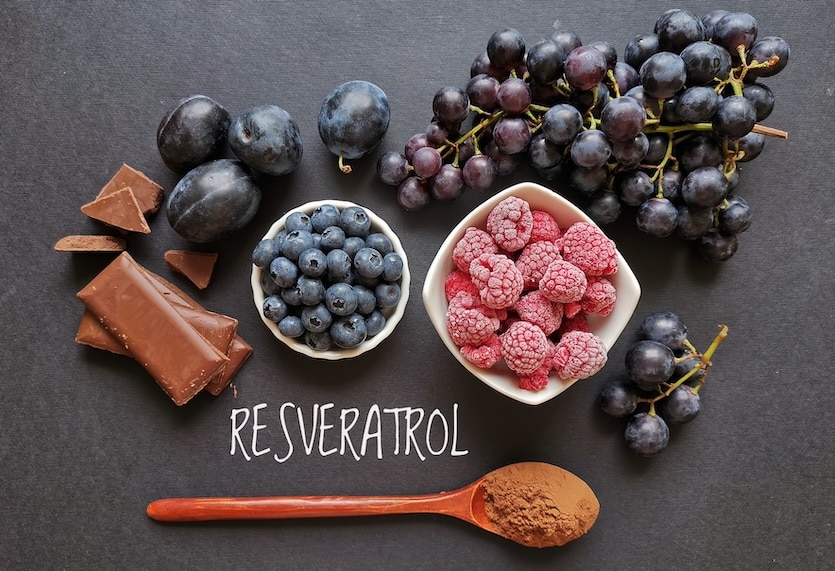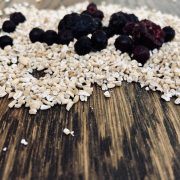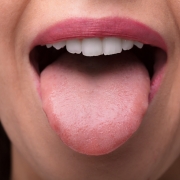Resveratrol and Its Health Benefits
When it comes to alcohol consumption and health, one claim is repeated time-and-time-again, “A glass of red wine with dinner is good for you.” But is this actually true? Let’s investigate.
As it turns out, red wine contains the plant compound resveratrol—the factor behind many of the red wine health claims. Read on to learn what resveratrol is, how it impacts your health, and where you can find it.
What is Resveratrol?
As mentioned above, resveratrol is a plant compound, more specifically, a polyphenol. In other words, it’s a naturally occurring substance found in a variety of plants. Thought to act as an antioxidant, resveratrol helps the body rid itself of various toxins and free radicals. And this positive effect has prompted numerous studies to explore its potential health benefits.
Although much of the research surrounding resveratrol is recent, it isn’t new to most people’s diets. It’s found in common foods such as peanuts, various berries, grapes and, by extension, wine. Both red and white wine contain resveratrol, but red varieties have a much higher quantity.
Health Benefits of Resveratrol
With all the background info out of the way, let’s move to the big question: Is resveratrol good for you? The short answer is yes. But let’s take a look at why and how it impacts your health.
Some of resveratrol’s most widely accepted health benefits include:
- Antioxidant support: Numerous studies have observed ways resveratrol acts as an antioxidant. It has been shown to help the body eliminate free radicals (a type of atom that can damage cells) and reduce and prevent oxidative stress. Basically, it helps promote health on a cellular level.
- Inflammation reduction: When it comes to inflammation, resveratrol supports your body on two fronts. First, it helps prevent the production of inflammatory substances. And second, it supports a healthy inflammatory response—crucial for the health of key organs and body systems.
- Cardiovascular health: Oxidative stress in the body can negatively impact cardiovascular health (the proper function of heart and blood vessels). And as mentioned, resveratrol has been shown to support healthy inflammation and the reduction of oxidative stress—the primary reason it’s often discussed with heart health. It supports key processes in your body directly associated with keeping your heart and blood vessels functioning smoothly.
- Liver function: The liver provides vital functions in your body, including filtering the blood and breaking down harmful substances. And resveratrol has been shown to promote liver health by helping to protect it from unhealthy levels of toxicity.
- Brain aging: In some studies, resveratrol has been shown to support healthy aging of the brain.
Resveratrol and Your Diet
You now know three natural sources of resveratrol are berries, grapes, and peanuts. In grapes and berries, most of the resveratrol is found in the skin and seeds, rather than the flesh of the fruit itself. Other common resveratrol-rich foods include pistachios, dark chocolate, and cocoa.
The way a food is prepared affects the level of resveratrol. For example, 100 milliliters of red wine contains up to twice as much resveratrol as one cup of red grapes. And raw peanuts give you a lot more resveratrol than peanut butter.
| Food | Serving | Total Resveratrol |
| Peanuts (raw) | 1 cup (146 grams) | 0.37 mg |
| Peanut butter | 1 tbsp (16 grams) | 0.0025–0.0081 mg |
| Red grapes | 1 cup (151 grams) | 0.24–1.25 mg |
| Cocoa powder | 1 tbsp (7.5 grams) | 0.011–0.017 mg |
| Red Wine | 5 oz. (148 mL) | 0.03–2.15 mg |
| White Wine | 5 oz. (148 mL) | 0.01−0.27 mg |
As you build a healthy, well-balanced diet there are important factors to consider—and resveratrol intake isn’t one of them. That is, you shouldn’t change your whole diet to target resveratrol-rich foods. If you want to ingest more resveratrol, try incorporating some of the foods above into your existing diet. If you snack on raw fruit and vegetables, maybe pick up some red grapes next time you’re at the supermarket. For a sweet treat, swap milk chocolate for dark chocolate—you get the idea.
Another way to increase resveratrol intake is through supplementation. A glass of red wine, one of the best sources of resveratrol, has typically less than 2 mg of resveratrol per serving. A supplement can provide ten times this amount, or even more.
Resveratrol Side Effects
If all of your resveratrol intake is coming by diet and quality supplements, it’s unlikely you’ll see any negative side effects. Resveratrol is not a toxic substance, and your body can easily handle up to five grams per day.
In higher doses, resveratrol may cause gastrointestinal distress. If you choose to take a supplement, as always, consult with a doctor first.
The Bottom Line
Resveratrol has been shown to be a powerful antioxidant to help promote cardiovascular and neurological health. Benefits can come when it’s taken as a supplement or by eating foods that naturally contain resveratrol—yes, even that much talked about glass of red wine. So cheers to you and your health!












